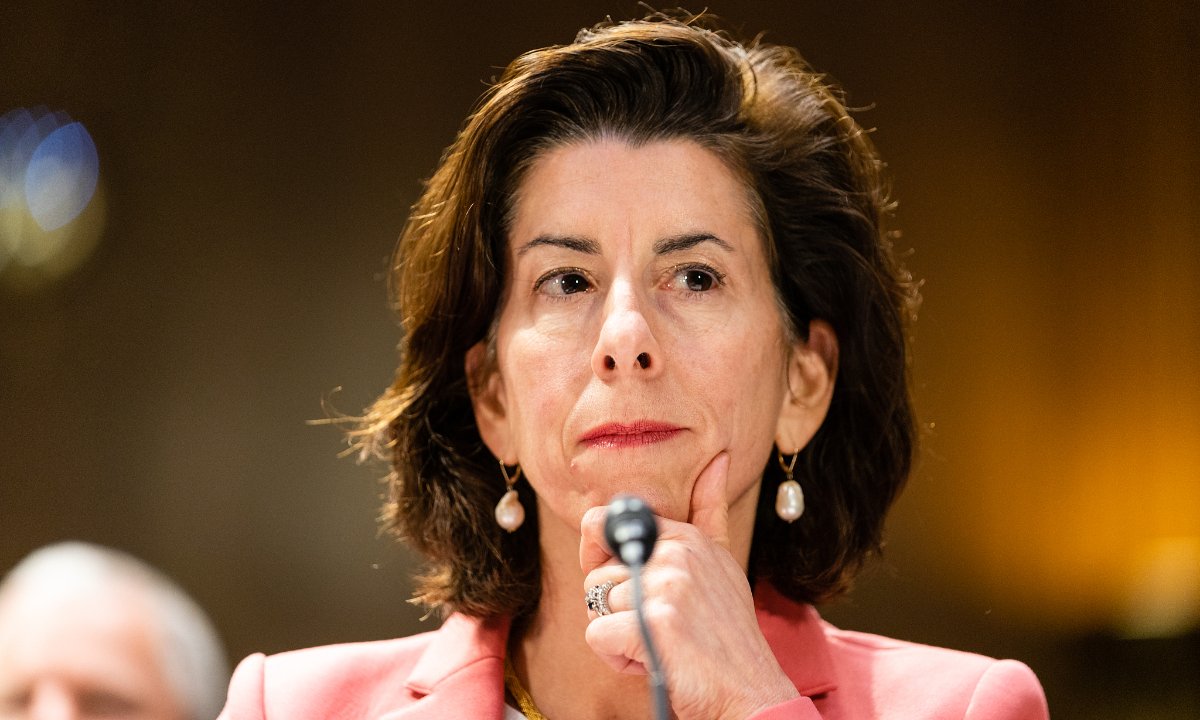US-China Relations: The Significance of Secretary Gina Raimondo’s Visit
The international political stage is set to witness a significant event as Gina Raimondo, the US Secretary of Commerce, gears up for a high-level visit to China. With growing concerns surrounding US-imposed technological export restrictions to China, overseen directly by Raimondo’s agency, the visit will be closely watched as a measure of US intentions regarding sincere dialogue with its Asian counterpart.
Visit Details and Context
Secretary Raimondo is scheduled to be in China from Sunday to Wednesday, as confirmed by China’s Ministry of Commerce. The diplomatic circles and international observers view this as an encouraging sign, indicating the unwavering commitment of both nations to maintain a dialogue, even as they navigate through some of their most challenging bilateral relationship phases in recent history.
The media has echoed this sentiment of hope. Bloomberg recently highlighted that among Biden’s officials, “Raimondo may have the best chance… of reducing the tension between the world’s two dominant economic powers.”
Skepticism and Concerns
Despite the positive signals, there remains a degree of skepticism. A considerable number of experts in China question the genuineness of the US’s intentions. This doubt stems primarily from America’s continued stringent measures against China, with technological export restrictions, executed by Raimondo’s department, being at the forefront of discussions.
He Weiwen, a renowned researcher at the Center for China and Globalization, emphasized the significance of addressing these tech restrictions during Raimondo’s visit. He mentioned in an interview with the Global Times, “The focal point will undeniably be the US’s stance on high-tech exports. A fruitful dialogue here can pave the way for future negotiations on economic and trade concerns.”
There’s also an element of déjà vu among observers. While Raimondo is expected to reiterate America’s intent to maintain ties with China, many feel that actions speak louder than words. As the New York Times mentioned, Raimondo’s trip might display the “balancing act” that the Biden administration is trying to achieve with China. But reports suggesting that post-visit, the US might intensify restrictions on semiconductor sales to China further exacerbate concerns.
Experts argue that such measures neither reflect sincerity nor fortify bilateral relations. Adopting restrictive policies under the broad banner of national security concerns doesn’t align with the idea of not “decoupling” from China.
Positive Indications
In contrast, recent actions by the US suggest attempts to build bridges. For instance, the US State Department has expressed interest in extending the US-China Science and Technology Agreement, a long-standing pact set to lapse soon.
Furthermore, the US Commerce Department took a significant step by delisting 27 Chinese entities from its “unverified list” – a compilation of foreign entities restricted from acquiring US technologies. Notably, the US Department of Transportation also greenlit the addition of six more flights operated by Chinese airlines.
Gao Lingyun, an expert from the Chinese Academy of Social Sciences in Beijing, expressed optimism to the Global Times, saying, “These decisions underline the realization within the Biden administration that unduly suppressing China could adversely affect US interests. It shows an active interest in reviving economic and trade ties, aligning with China’s objectives.”
Gao further acknowledged the positive trajectory signaled by Raimondo’s visit and believes both nations have prepared adequately for it.
A Balanced Perspective
However, while the preparations and intentions might be in place, the outcomes remain uncertain. Experts unanimously agree that the US must actively work towards fostering a conducive environment to stabilize bilateral ties. It’s not just about setting the stage; it’s about the performance that follows.
Stability in economic and trade relations between China and the US holds profound implications. It’s not just about the two nations; the ripple effect of their relations touches the global economic and political landscape. As He Weiwen aptly put it, what’s needed is “tangible outcomes, not just words.”
Conclusion
As Secretary Gina Raimondo embarks on her critical journey, the world watches with bated breath. The conversations, negotiations, and the eventual outcomes will not only define the immediate future of US-China relations but potentially chart the course of global geopolitics. With stakes this high, the emphasis is on constructive dialogue, tangible outcomes, and a vision for a collaborative future. The world can only hope that rhetoric gives way to real results.
Read More:
